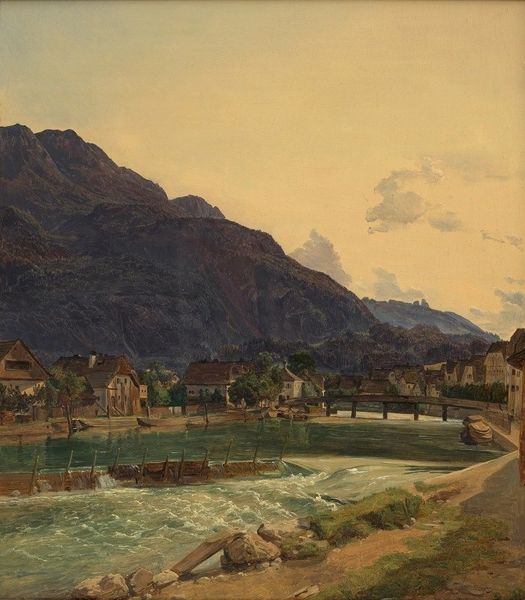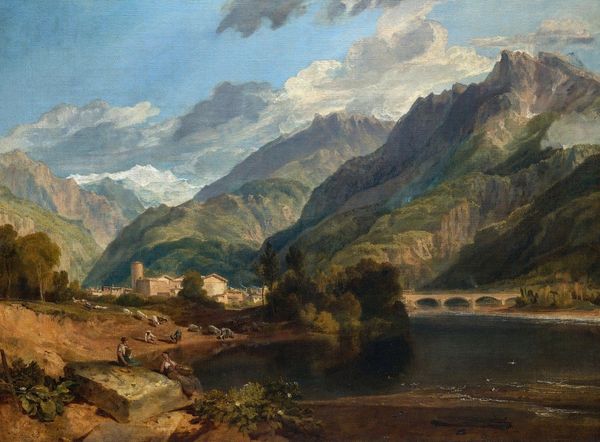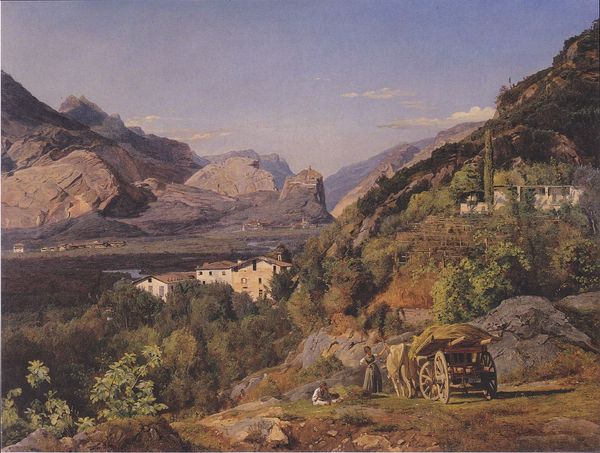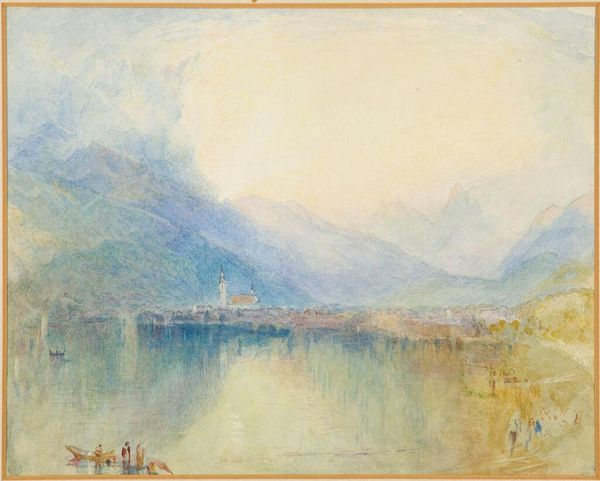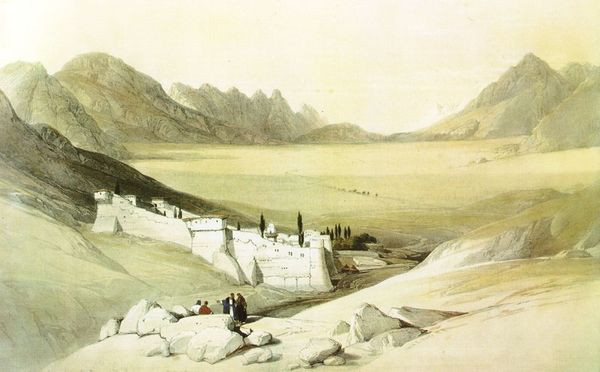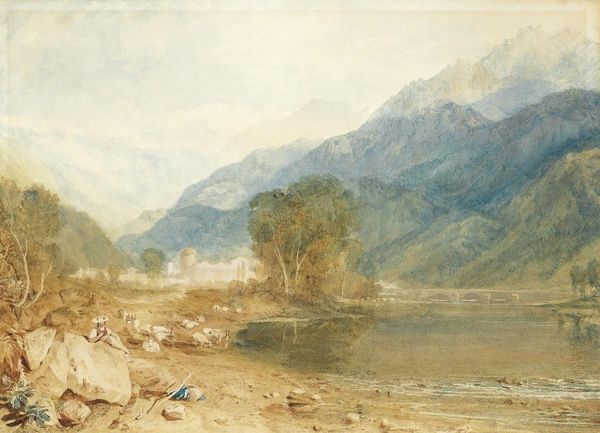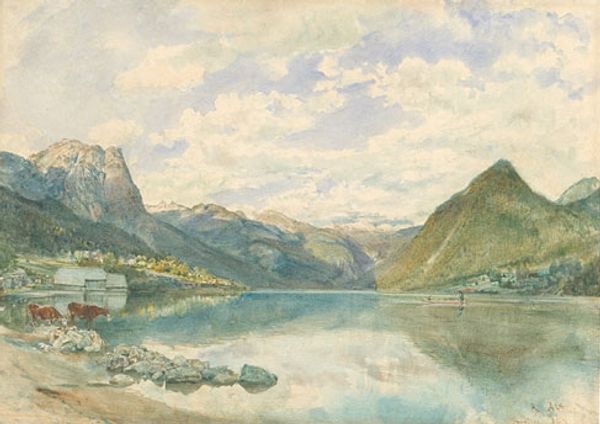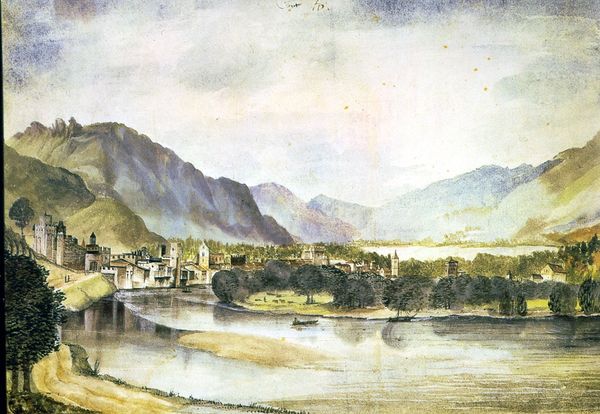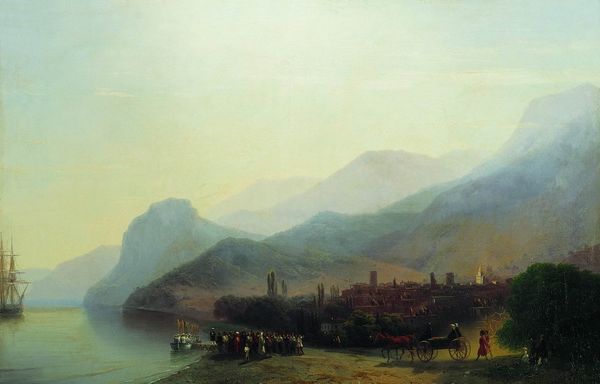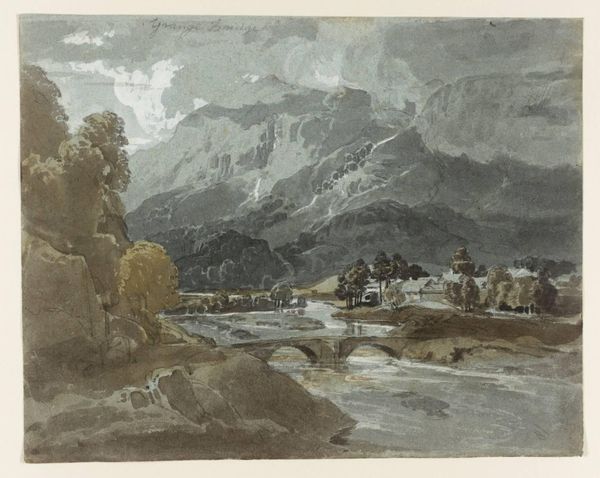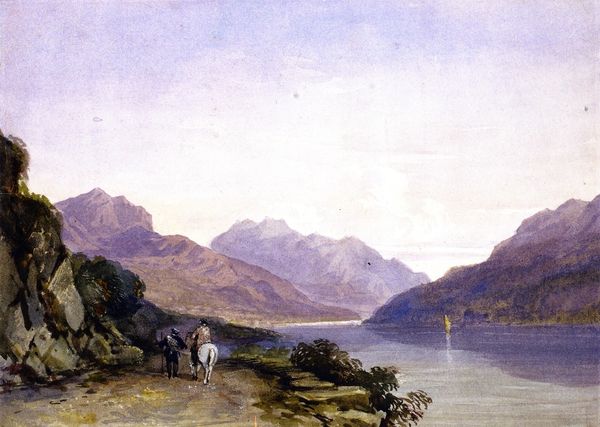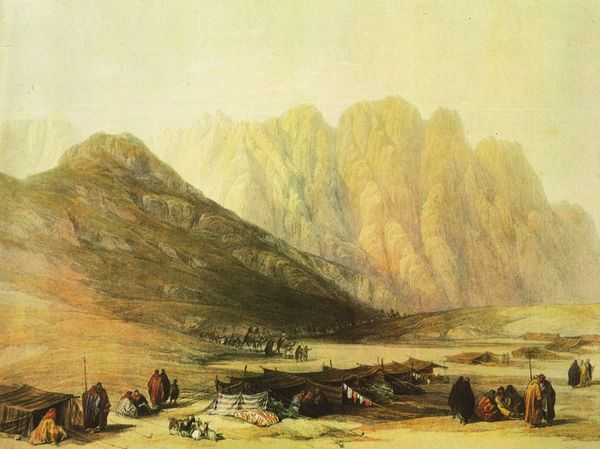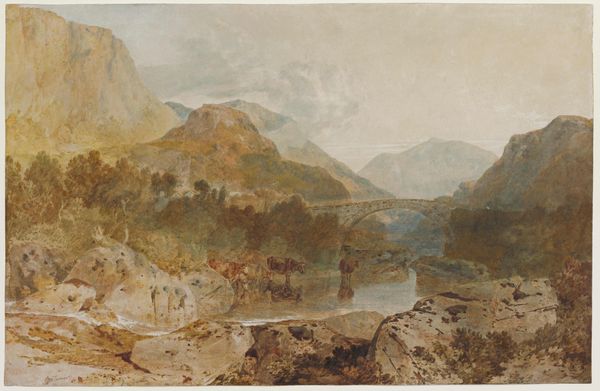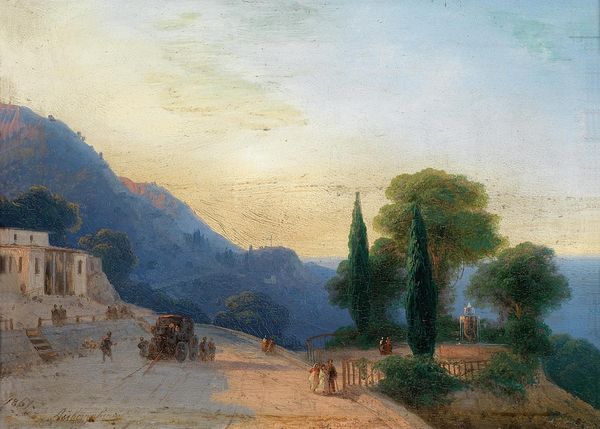
painting, oil-paint
#
painting
#
oil-paint
#
landscape
#
oil painting
#
romanticism
#
cityscape
#
realism
Dimensions: 265 x 315 cm
Copyright: Public domain
Editor: Here we have Ferdinand Georg Waldmüller's oil painting, "Bad Ischl," created in 1836. There's something so serene and picturesque about it. What really stands out is how the artist juxtaposes the small village with the looming presence of nature. What's your take on this artwork? Curator: Well, "Bad Ischl" tells us a lot about the burgeoning tourist industry in the Austrian Empire and Waldmüller's own position within that socio-economic shift. It's not just a pretty picture; it's a carefully constructed representation of a specific place becoming popular for its supposedly restorative properties. Editor: Restorative? How so? Curator: Bad Ischl was a fashionable spa town. Think about how Waldmüller frames the scene, drawing your eye towards the architecture nestled amongst the mountains. The emphasis on clarity, detail and sunlight almost serves as an advertisement, doesn’t it? He is capturing, in a way, an imagined idyll for the upper classes. Editor: I see what you mean. It's not just a detached observation; it’s subtly selling an experience. So, you are suggesting this painting promotes an accessible and beneficial, even medicinal, vision of nature rather than the sublime or overwhelming sort usually seen in Romanticism? Curator: Exactly. He's participating in the construction of this location as a site of leisure. It's a fascinating example of how art intersects with tourism and public perception of landscape, blurring the lines between observation and promotion. It almost seems less about nature itself and more about how nature benefits *us*. Editor: That's given me a completely new perspective. I had seen it simply as a pleasant landscape, but now it seems charged with social and economic context! Thanks for enlightening me.
Comments
No comments
Be the first to comment and join the conversation on the ultimate creative platform.
